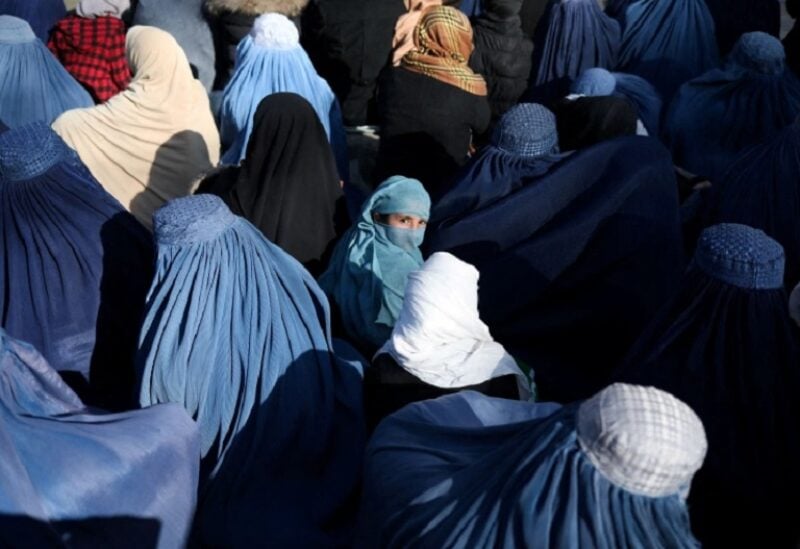Two years after the Taliban banned girls from school beyond sixth grade, Afghanistan is the only country in the world with restrictions on female education. Now, the rights of Afghan women and children are on the agenda of the United Nations General Assembly Monday in New York.
The U.N. children’s agency says more than 1 million girls are affected by the ban, although it estimates 5 million were out of school before the Taliban takeover due to a lack of facilities and other reasons.
The ban triggered global condemnation and remains the Taliban’s biggest obstacle to gaining recognition as the legitimate rulers of Afghanistan. But the Taliban defied the backlash and went further, excluding women and girls from higher education, public spaces like parks, and most jobs.
WHY DID THE TALIBAN EXCLUDE GIRLS FROM HIGH SCHOOL?
The Taliban stopped girls’ education beyond sixth grade because they said it didn’t comply with their interpretation of Islamic law, or Sharia. They didn’t stop it for boys. In the past two years, they’ve shown no signs of progress in creating the conditions they say are needed for girls to return to class.
Their perspective on girls’ education partly comes from a specific school of 19th century Islamic thought and partly from rural areas where tribalism is entrenched, according to regional expert Hassan Abbas.
“The ones who went on to develop the (Taliban) movement opted for ideas that are restrictive, orthodox to the extreme, and tribal,” said Abbas, who writes extensively about the Taliban. The Taliban leadership believes women should not participate in anything social or public and should especially be kept away from education, said Abbas.
The Taliban also stopped girls’ education when they ruled Afghanistan in the late 1990s.
WHAT DO MUSLIM-MAJORITY COUNTRIES SAY ABOUT THE BAN?
There’s a consensus among clerics outside Afghanistan that Islam places equal emphasis on female and male education. “The Taliban have no basis or evidence to claim the contrary,” said Abbas. But pleas from individual countries and groups, like the Organization of Islamic Cooperation, have failed to sway the Taliban.
Syed Akbar Agha, a former Taliban front-line commander, said the insurgents espoused an Islamic system the day they entered Kabul in August 2021.
“They also gave Afghans and the outside world the idea that there would be an Islamic system in the country,” said Agha. “There is currently no (other) Islamic system in the world. The efforts of the international community are ongoing to implement democracy in Islamic countries and turn them away from the Islamic system.”
WHAT IS THE IMPACT OF THE BAN ON WOMEN?
Roza Otunbayeva, U.N. Secretary-General Antonio Guterres’ special representative for Afghanistan and the head of the U.N. mission in Afghanistan, said one of the obvious impacts of an education ban is the lack of training of aspiring health care professionals.
Female medical students had their studies halted after last December’s Taliban edict banning higher education for women. Afghan women work in hospitals and clinics — health care is one of the few sectors open to them — but the pipeline of qualified people will dry up. Afghan women cannot see male doctors, so children will also lose out on medical attention if women are their primary carers.
“Looking into the future and a scenario where nothing changes, where will the female doctors, midwives, gynecologists, or nurses come from?” Otunbayeva said in an email to The Associated Press. “In a strictly gender segregated society, how will Afghan women be able to get the most basic healthcare services if there are no female professionals to treat them?”
WHAT IS THE IMPACT ON AFGHANISTAN’S WIDER POPULATION?
The high school ban is not just about girls’ rights. It’s a worsening crisis for all Afghans.
Tens of thousands of teachers have lost their jobs. Support staff are also unemployed. Private institutions and businesses that benefited financially from girls’ education have been hit. Afghanistan has a shattered economy and people’s incomes are plummeting. Excluding women from the job market hurts the country’s GDP to the cost of billions of dollars, says UNICEF.
The Taliban are prioritizing Islamic knowledge over basic literacy and numeracy with their shift toward madrassas, or religious schools, paving the way for a generation of children with no contemporary or secular education to improve their or the country’s economic future.
There are other consequences for the general population, like public health and child protection.

